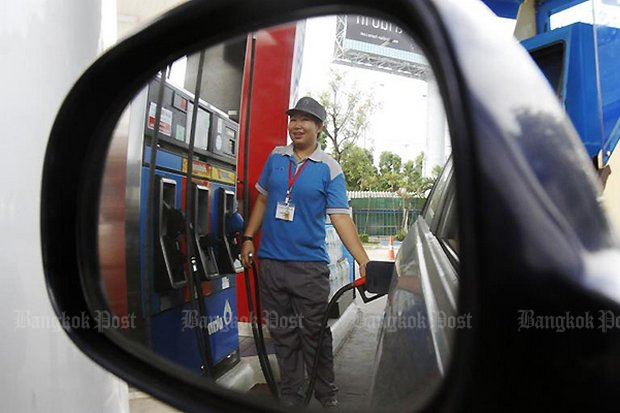
The subsidy from the State Oil Fund will be enough to maintain fuel prices at the current level until the end of the year if consumption is not excessive, said Prime Minister Prayut Chan-o-cha.
He insisted the State Oil Fund proves a vital tool for stabilising oil prices and limiting the effects on the economy.
The spike in prices in recent weeks has led to complaints from consumers and to transport operators pressing the government to green light a fare hike.
Gen Prayut said he came to power four years ago when the State Oil Fund had been used up. He rejected calls by some experts to abolish the fund and let the petrol and diesel prices be dictated by market forces.
Had the government not started replenishing the fund over the past four years, the country would not have the resources to subsidise the prices at times like this, the prime minister said.
The State Oil Fund has about 31 billion baht in its coffers.
The government has estimated that if consumers use oil carefully, there will be enough subsidy available to keep prices at their current level for the remainder of the year, he said.
"Some people are complaining that [fuel prices] are too high. How can that be? The prices have been cushioned already," he said.
PTT announced the prices of its petrol have been adjusted down as of Tuesday morning, with gasohol 95 retailing at 29.25 baht per litre, gasohol 91 at 28.98 baht a litre, gasohol E20 at 26.74 baht a litre and gasohol E85 at 21.14 baht a litre.
Gen Prayut said the diesel price was also below 30 baht a litre, although premium diesel was not.
According to the prime minister, some economic issues the country is experiencing are caused by external problems.
Dismissing suggestions he should listen less to state officials in implementing economic policies, Gen Prayut said he must take into account input from officials and the plight of the people.
Meanwhile, PTT CEO Tevin Vongvanich said Monday the social media-organised boycott of PTT petrol would not affect PTT but would hurt the small operators who run 90% of PTT stations.
PTT's profit would not be affected because petrol made up only 10% of total revenue while about 90% of its 1,500 stations were run by small-scale operators, he said. The impact on these small businesses was what prompted PTT management to issue the clarification, he added.
Mr Tevin was reacting to accusations on social media of poor service, high prices and calls for a boycott of the company.
"If consumers reject PTT petrol because of poor service or fuel quality, it would be understandable. But if this result from a misunderstanding, then we must explain," Mr Tevin said.
He denied claims that PTT unfairly sold petrol at higher prices and would lay off staff because of the boycott.
He said PTT never retailed petrol at prices higher than its competitors.